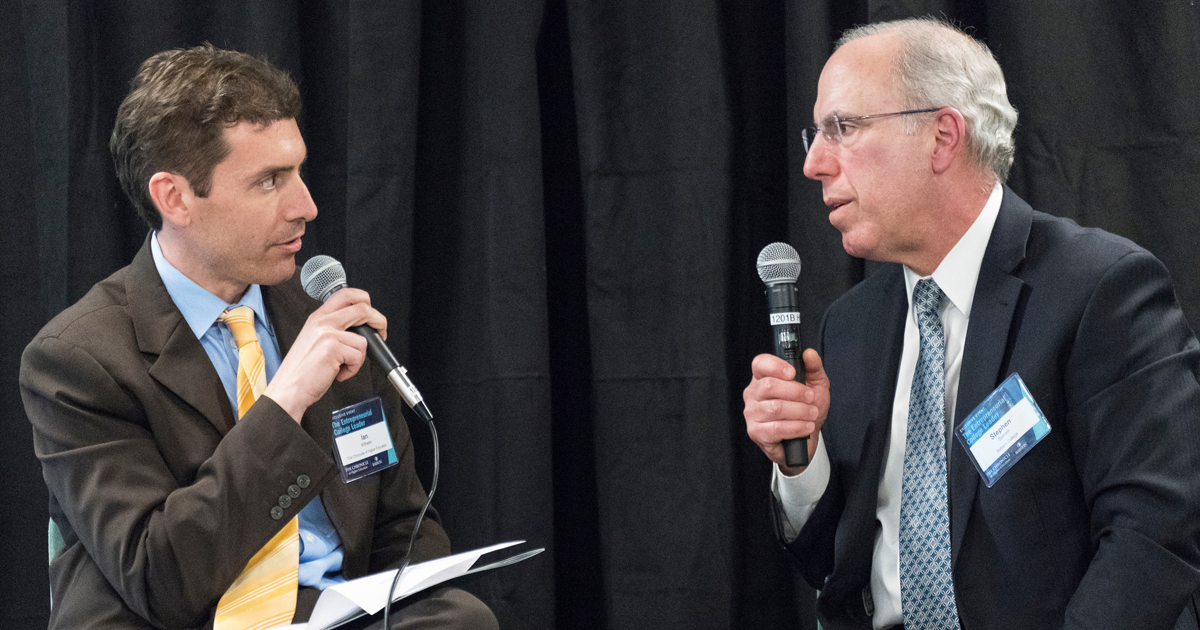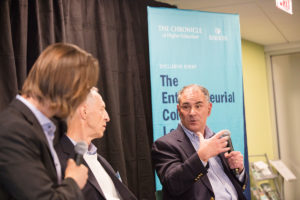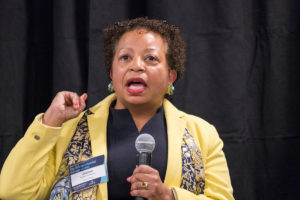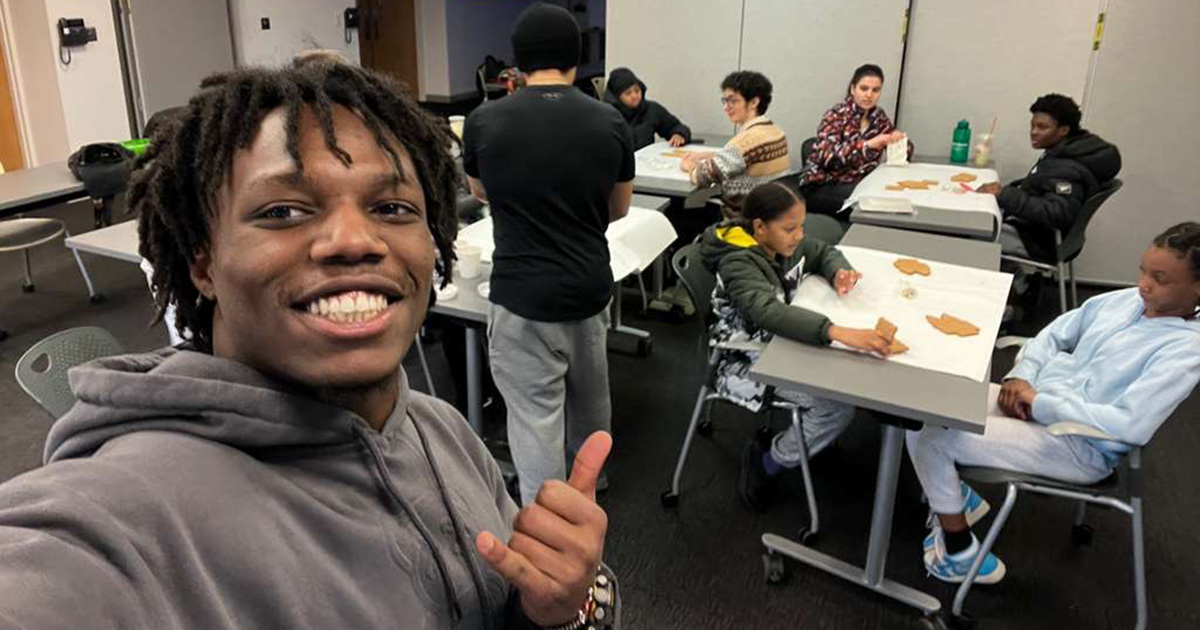Higher Education’s Future Requires Entrepreneurial Leadership

Higher education has never faced as many challenges as it does today. Declining numbers of traditional students within the United States. Increasing costs with highly restrained revenue streams. An erosion of public trust. Competition from for-profit or corporate learning programs.
These are just some of the challenges discussed by college and university leaders at a meeting convened by The Chronicle of Higher Education and hosted by the Babson Academy for the Advancement of Global Entrepreneurial Learning at the College’s Boston location.
More than 90 presidents, provosts, and other senior administrators attended the invitation-only event designed to spark conversations about how colleges and universities must transform themselves to meet the changing demands of the learning marketplace.
At the heart of the conversation: Entrepreneurial Thought & Action® by college leadership is no longer nice to have; it has become a requirement.
Heidi Neck, Babson Academy’s academic director, opened the evening’s discussion with her thoughts about the current state of affairs.
“We are working in an industry where tradition is holding us down, while our competition is speeding up,” Neck said. “We should not be reacting to the future; we should be creating the future. We play defense when we should be playing offense,” she said. “For more than 30 years, Babson has been teaching professors and academic leaders from colleges around the world how to teach entrepreneurship.”
 The event included two panel discussions plus an interview with President-elect Stephen Spinelli, Jr. MBA ‘92, PhD.
The event included two panel discussions plus an interview with President-elect Stephen Spinelli, Jr. MBA ‘92, PhD.
The first panel focused on the qualities needed by transformative leaders and featured Saul Kaplan, founder and chief catalyst of the Business Innovation Factory, and James V. Koch, Board of Visitors professor of economics, and president emeritus of Old Dominion University.
Kaplan suggested that college leaders need to have a willingness to imagine a world that does not exist today, and to try new approaches.
“College leadership needs to open up new markets and find new ways to deliver value to their students,” he said. “Colleges need a program for incremental improvement plus innovation to advance the current model. But, they also need, at the same time, to create the conditions for people to think about and create new markets. Colleges are organized for tweaks but not for transformations. You cannot transform anything unless you can imagine new markets.”
In an interview with the Chronicle’s Senior Editor Ian Wilhelm, Spinelli responded to a question about what colleges need to do to transform.
“Is learning expanding or contracting?” Spinelli asked. “There is a need for new knowledge all the time, the global opportunities for meaningful learning and the potential audiences for learning are vast, complex, and exciting,” he said. “Colleges need to align their human capital and financial resources to examine, inform, and meet the changing and growing needs of potential students everywhere.”
“The golden age of entrepreneurship is upon us,” Spinelli said. “When we can create an environment that is about collaboration within higher education, in which colleges partner with one another in addition to industry and other nonprofits, that is when we can create and build an educational ecosystem to define the future of learning.”
 The second panel focused on the role of entrepreneurism in college leadership and included Joanne Berger-Sweeney, president of Trinity College, and Dennis Hanno, president of Wheaton College.
The second panel focused on the role of entrepreneurism in college leadership and included Joanne Berger-Sweeney, president of Trinity College, and Dennis Hanno, president of Wheaton College.
In that discussion, the evening concluded on a positive note.
“Higher education has great variety,” said Berger-Sweeney. “Think about the power of the sector. Every college is not going to be everything to everyone. However, the variety of institutions does make a difference. There are plenty of opportunities.”
“While the 18- to 22-year-old population is declining in New England, that is not the case in all states, and definitely not the case worldwide,” Berger-Sweeney continued. “The higher education market is growing. Higher education is one of our best exports. We should not lose sight of the world market.”




